In today's world, where people rely on multiple medications to manage their health, understanding drug interactions is crucial for ensuring safety and effectiveness. Drug interactions occur when the effects of one drug are altered by another drug, food, or substance, leading to unexpected or dangerous results. In this comprehensive guide, we’ll explore what drug interactions are, the different types, how they affect your health, and how to minimize risks.
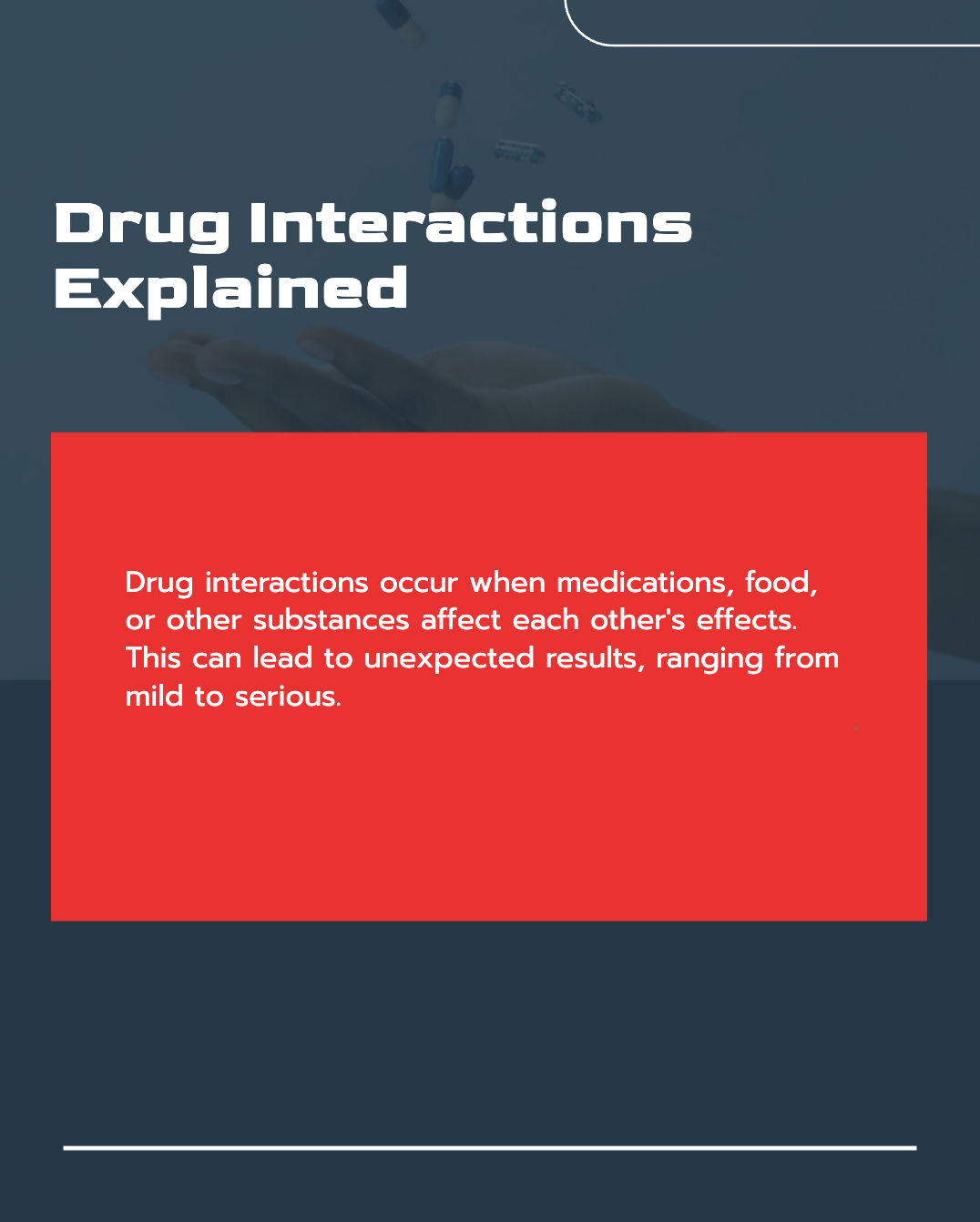
A drug interaction happens when one substance, be it a medication, food, or alcohol, affects how another drug works. This interaction can either increase or decrease the effectiveness of the drugs involved or cause harmful side effects. Some drug interactions can be mild and cause no issues, while others can be life-threatening. Understanding these interactions is essential for patients and healthcare providers alike.
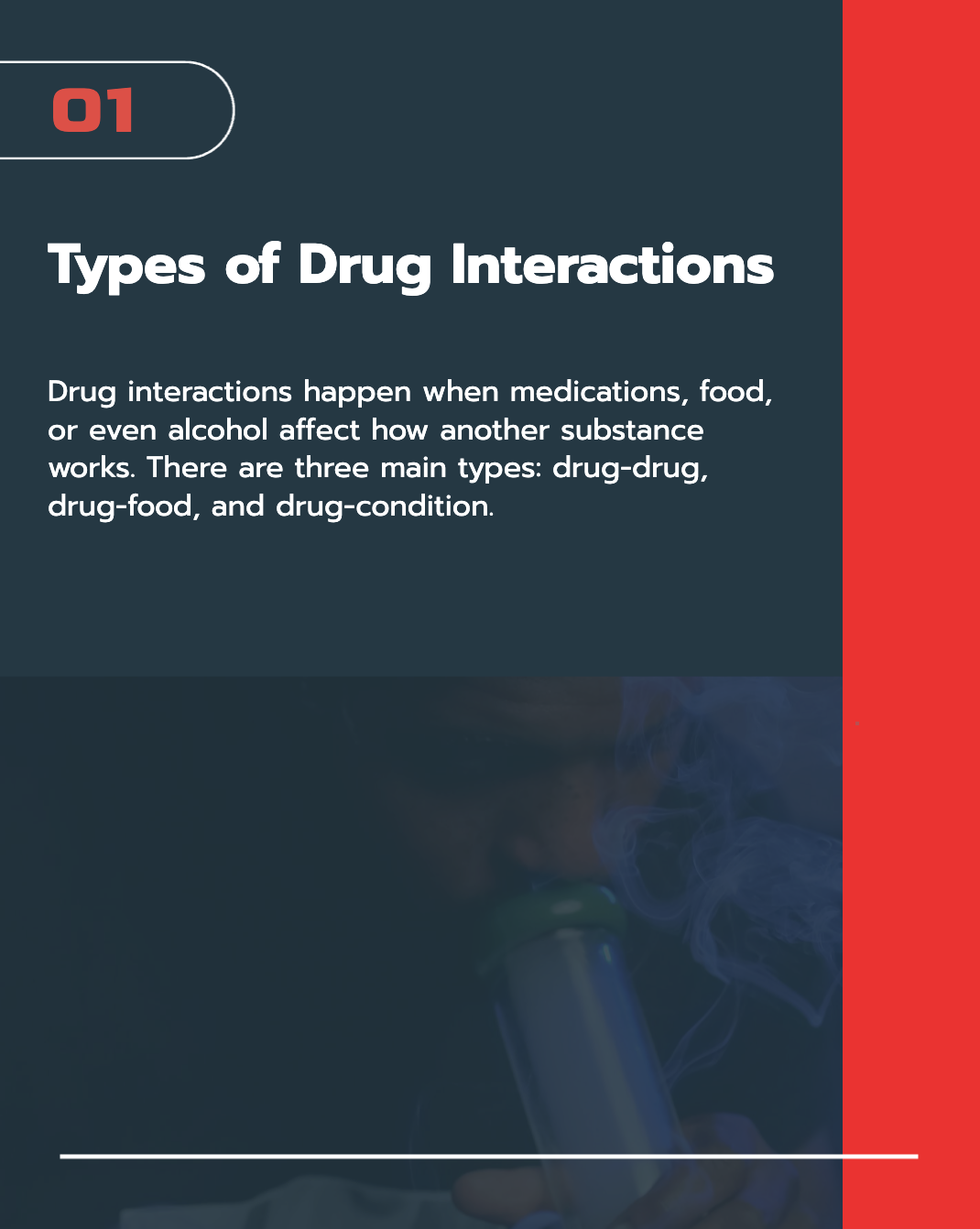
Drug interactions are typically classified into three main types:
These occur when two or more drugs interact with each other, potentially altering their effects. This can happen when drugs are taken together, especially if they are processed by the same enzyme in the liver.
Certain foods can interfere with the absorption or effectiveness of medications. For example, grapefruit juice can affect how some drugs are metabolized, leading to either reduced effectiveness or dangerous side effects.
A person’s existing medical conditions can also influence how a drug works. For example, a patient with liver disease may not metabolize certain drugs properly, leading to higher drug levels in the bloodstream.
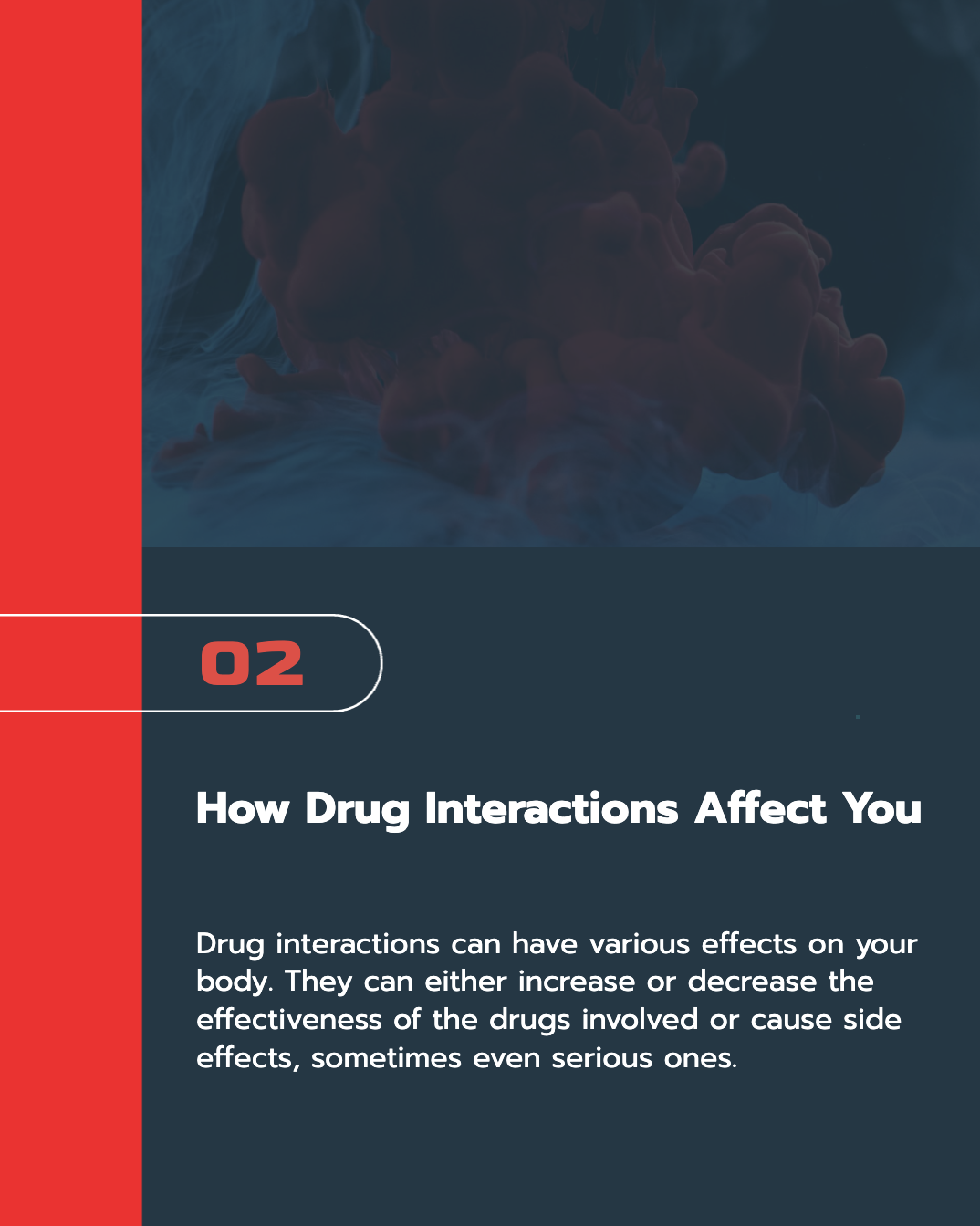
When drug interactions occur, they can have various effects on your body. Some of the common outcomes include:
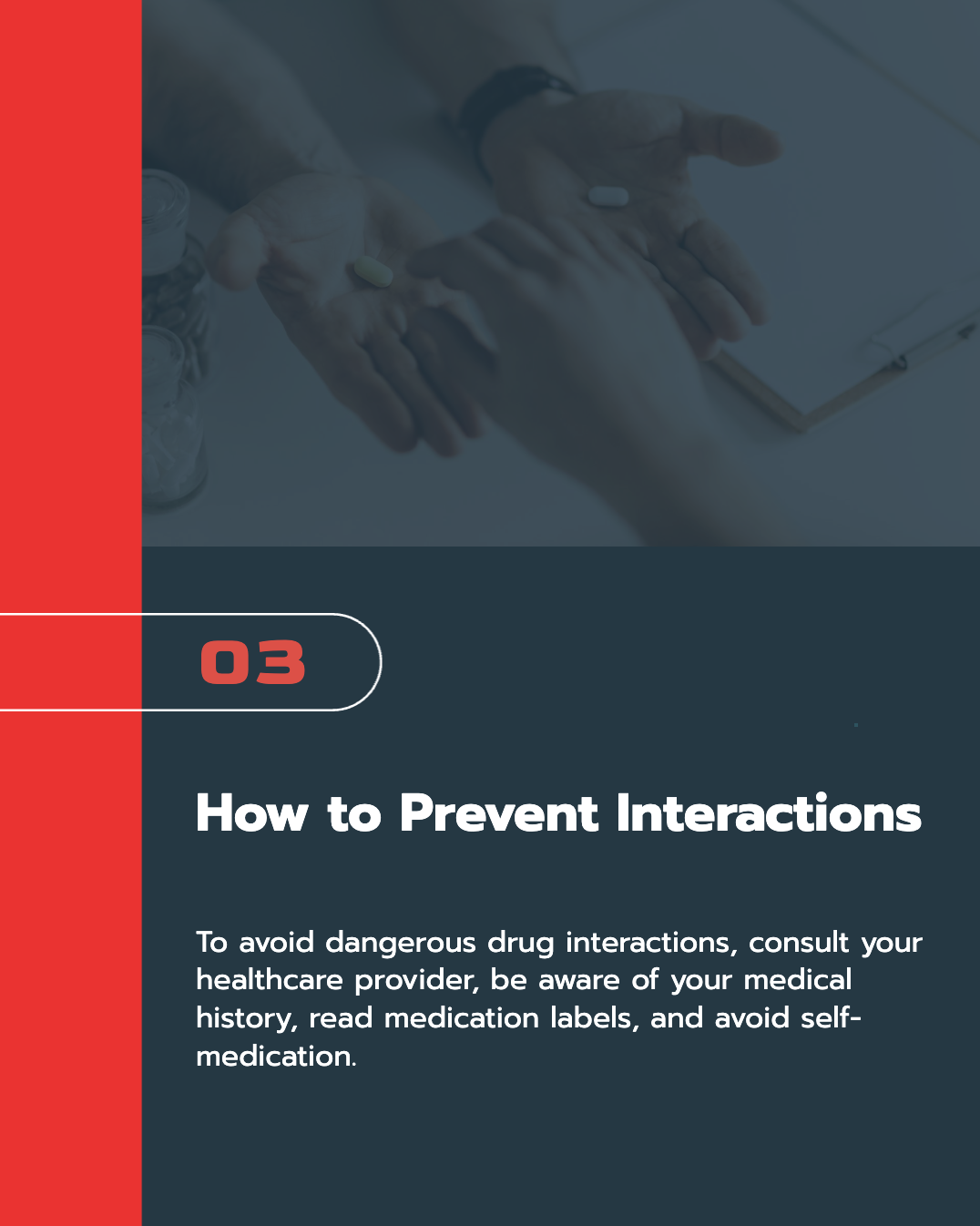
Before starting any new medication, inform your doctor or pharmacist about all the drugs you're currently taking, including over-the-counter medicines, supplements, and herbal remedies. This can help prevent harmful interactions.
Certain health conditions, such as liver or kidney disease, can affect how your body processes medications. Ensure your healthcare provider is aware of any pre-existing conditions.
Always read the labels and accompanying information for any medication you take. These documents often include warnings about potential drug interactions.
A medication management system or medication list can help you keep track of all the drugs you're taking. This can be a physical list or a digital app, and it should be shared with your healthcare providers.
Never take medications on your own without consulting a healthcare provider, especially if you're already on prescription drugs. Some over-the-counter drugs and supplements can interact with your regular medications.
If you suspect a drug interaction is affecting you, take the following steps:
If you experience unusual symptoms or side effects after starting a new drug, reach out to your healthcare provider right away.
Your healthcare provider may adjust your medication or recommend an alternative to avoid harmful interactions.
Keep track of any changes in your symptoms or health condition and report them to your doctor.
Before any drug is approved for public use, it undergoes extensive testing through clinical trials. These trials are designed to identify potential drug interactions by testing the drug on various populations and in combination with other medications.
Pharmacists and healthcare providers use specialized databases to check for possible drug interactions. These databases compile information about the pharmacological properties of drugs and their known interactions.
By maintaining accurate health records, patients can help their healthcare providers identify potential drug interactions. It's important to update your health records with all medications and supplements you're taking.
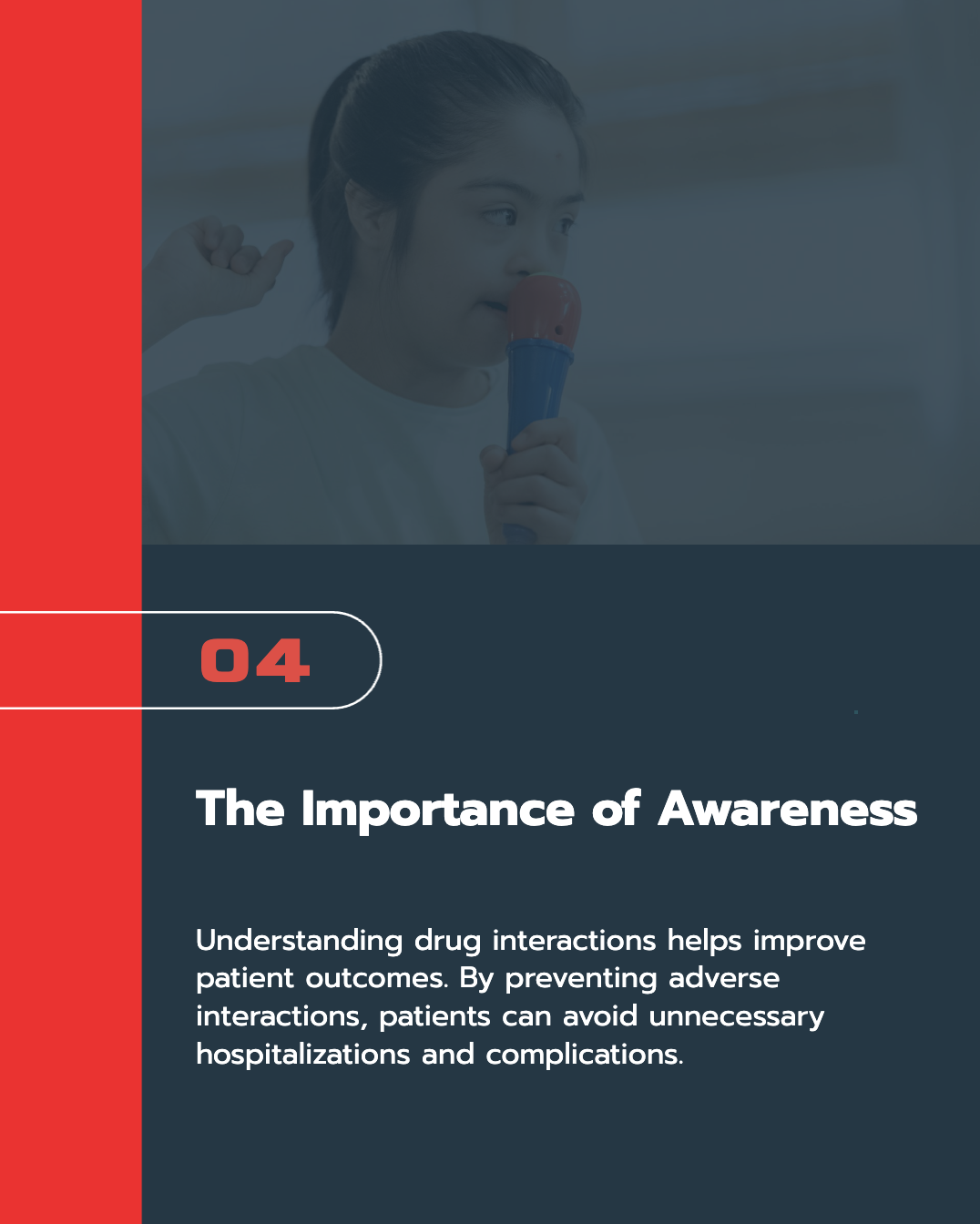
Awareness of drug interactions is essential for improving patient outcomes and reducing healthcare costs. By preventing adverse interactions, patients can avoid unnecessary hospitalizations, long-term complications, and sometimes even death. Healthcare providers must actively educate patients about potential drug interactions and empower them to make informed decisions about their medication.
Understanding drug interactions is vital for ensuring that medications work as intended and for avoiding potentially harmful side effects. By staying informed about the risks of drug interactions, communicating openly with healthcare providers, and following recommended guidelines, you can help protect your health and ensure the best outcomes for your treatment plan. Whether you are managing chronic conditions or simply taking a short course of antibiotics, awareness of drug interactions is essential for staying safe.
Yes, over-the-counter medications can interact with prescription drugs, causing harmful effects. Always inform your healthcare provider about any OTC medications you're using.
Common signs of drug interactions include unusual side effects, such as dizziness, nausea, or extreme tiredness. If you experience these symptoms, contact your healthcare provider immediately.
Not all drug interactions are harmful. Some may have mild effects, but others can cause serious complications. It's important to monitor your health and consult a doctor when in doubt.
Herbal supplements can interact with prescription medications. Always check with your doctor before combining them with prescribed drugs.
If you suspect a drug interaction, stop taking the medications and contact your healthcare provider. They may suggest alternatives or adjust your treatment plan.
 17.12.2024
17.12.2024